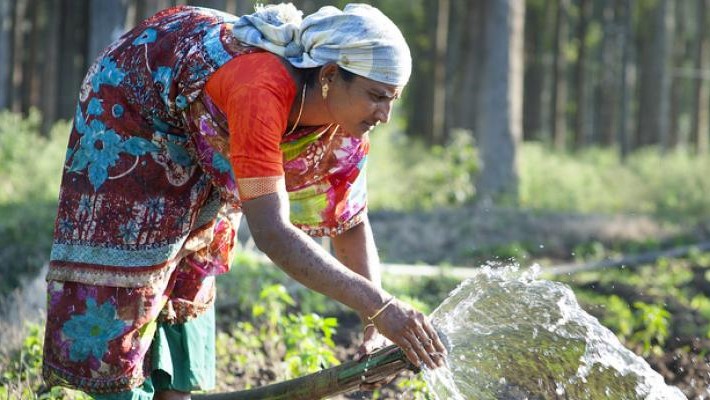COP23: Finances must triple to meet climate goals for water

November 10th, 2017
The level of financial support set aside for water projects under the Paris Climate Change Agreement will need to triple to €255 billion to stand a change of meeting targets.
This was the key message to come out of a meeting of the international water community on Water Action Day at the COP23 UN Climate Change Conference in Bonn, Germany this morning.
The international water community encompasses several networks such as the Alliance for Global Water Adaptation and the Global Alliances for Water and Climate.
The community co-signed a “nature-based solution declaration” at the opening of the day to encourage the use of natural systems in managing healthy water supplies.
Water must emerge as a greater priority in national policies and be integrated within other major sectors such as energy, food security, health, education, the community said.

Photo; International Water Management Institute
The community underlined the imperative to develop closer cooperation within the climate community, as well as the energy, agriculture, urban, health, and oceans communities.
The UN estimates that around 40 per cent of the world’s population will face water shortages by 2050, potentially leading to an acceleration in migration and conflict over resources.
Speakers at the meeting outlined that, without significant financial support, it will be difficult to achieve the sixth UN Sustainable Development Goal of ensuring availability and sustainable management of water and sanitation for all.
According to the UN, nearly 1,000 children die each day due to preventable water and sanitation-related diarrheal diseases. Over 2 billion people lack access to basic sanitation services, such as toilets or latrines.
In August, the United Nations Children’s Fund (UNICEF) warned that children living in fragile situations in particular are four times more likely to lack access to drinking water.
“Sustainable use of water for multiple purposes must remain a way of life and needs to be at the centre of building resilient cities and human settlements and ensuring food security in a climate change context,” said Mariet Verhoef-Cohen, President of the Women for Water Partnership, and Co-Chair of Water Scarcity in Agriculture Platform.
“Involving both women and men in decision making and integrated water resources initiatives leads to better sustainability, governance and efficiency,” said Ms Verhoef-Cohen.
[x_author title=”About the Author”]







